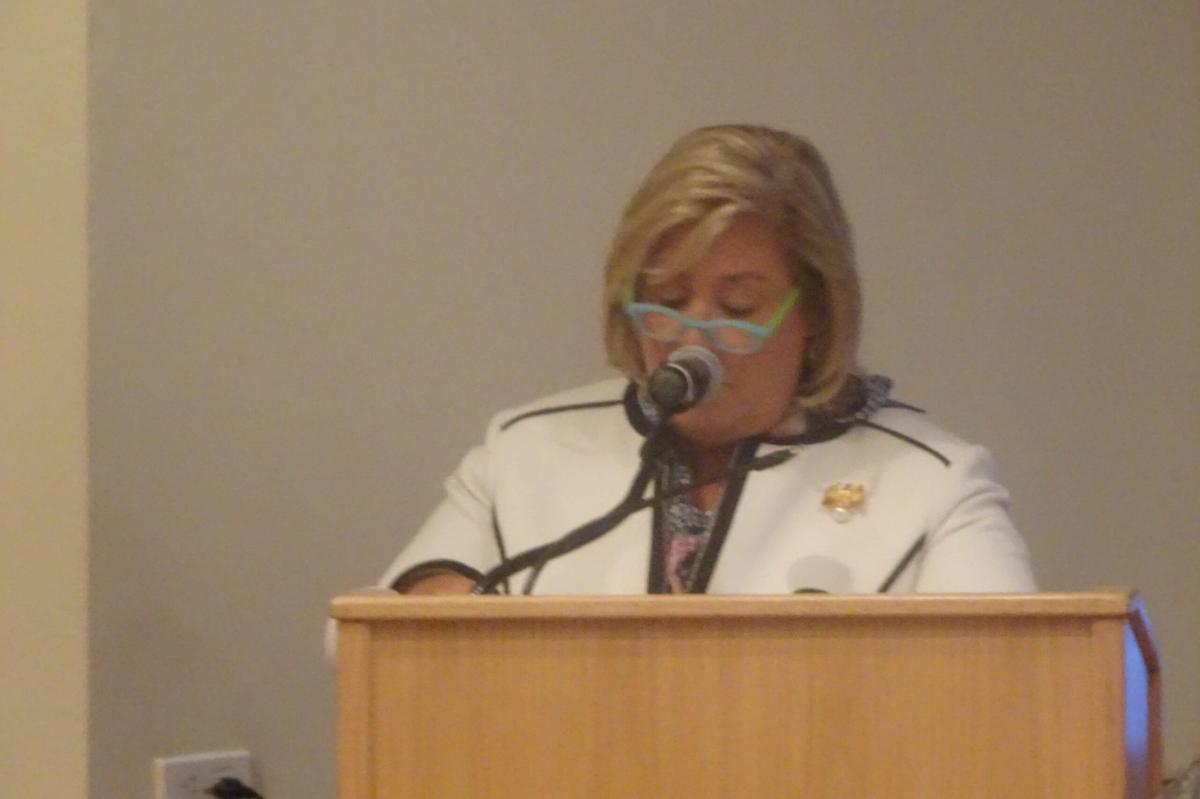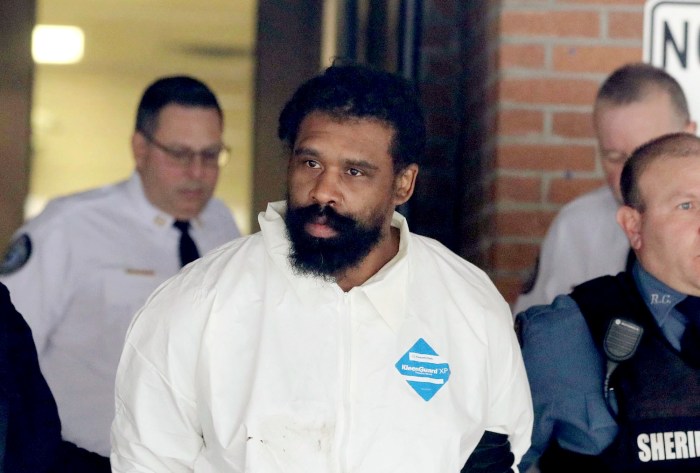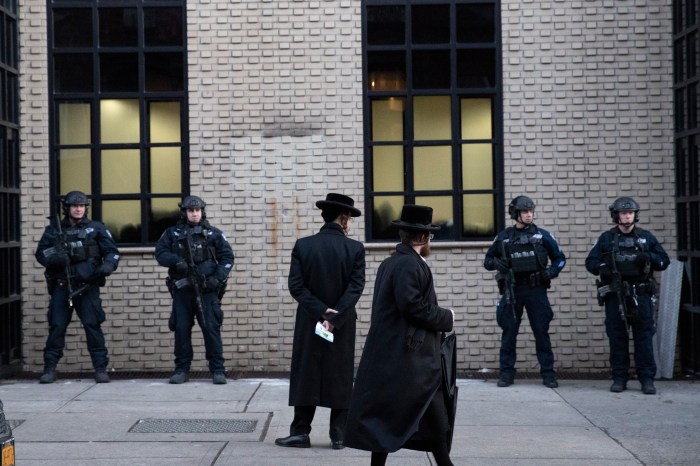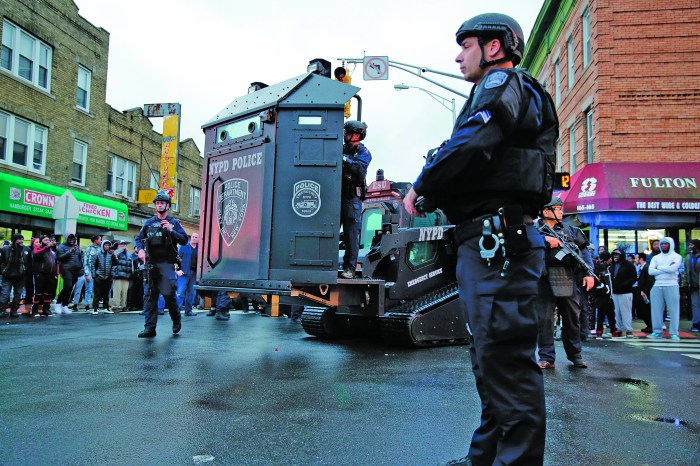Since the beginning of the year, our city has seen a frightening upsurge in anti-Semitic incidents. Last May, the NYPD reported a staggering 82 percent increase in anti-Semitic hate crimes for the first three months of 2019.
It was this upsurge that inspired Assembly Member Rebecca Seawright (D-Upper East Side, Yorkville) to host a panel discussion on how to resist anti-Semitism. She cited an incident that took place in March, when a vandal painted several swastikas on the walls of an Asphalt Green locker room.
“I was inspired to organize this forum after witnessing the horrific uprising in anti-Semitism and anti-Semitic attacks and instances nationwide,” said Seawright. “This issue was in the front of my mind following a disturbing incident a few months ago at Asphalt Green. The incident occurred just blocks away from our district government community office, where my children play. For bigotry to be so overtly displayed at this place, where our children play, learn and grow, is frustrating and disheartening.”
The event took place last night at the Lenox Hill Neighborhood House, 331 70th St. The panelists were as follows: Amanda Berman, founder of the Zioness Movement; Rabbi Joseph Potasnik, executive vice president of the New York Board of Rabbis; Jeff Leb, president of Capitol Consulting, LLC; David Pollock, associate executive director of the Jewish Community Relations Council; and Melissa Weiss, national outreach campus director at the Simon Wiesenthal Center.
Each panelist discussed ways to resist anti-Semitism from a different angle. Melissa Weiss, for instance, discussed the prevalence of anti-Semitism on college campuses.
“Dealing with anti-Semitism on college campuses is like playing Whack-a-Mole,” said Weiss. “It shows up in so many different forms. It can show up as a swastika scrawled on the wall. Or it can show up as a product boycott, in an attempt to de-shelf Sabra hummus or Ben & Jerry’s ice cream. It’s something that really tears apart campuses, and it’s something that’s been ongoing since 2011.”
Weiss promoted a strategy of passive resistance, urging Jewish students not to let the threat of hate crimes deter them from taking part in their favorite activities.
“If you’re into writing, join the school paper,” said Weiss. “If you like sports, join a team. Do the things you still like, because your Judaism is one part of you.”
Meanwhile, Jeff Leb discussed resistance from a legislative, policy-oriented perspective. He said that while the term “lobbying” often carries a negative connotation, it can be used as a force for good.
“Lobbying is a skill that’s thought of with derision, but it can serve a real purpose when you use it for advocacy,” said Leb. “You can promote programs that would provide resources for Holocaust survivors, or strengthen hate crime laws. Assembly Member Seawright took a very strong leadership role in doing that. She has many different bills pending in Albany that really try to crack down on discrimination.”
However, Leb clarified that a lawmaker’s advocacy shouldn’t just target anti-Semitism, but all forms of oppression against marginalized groups.
“Anti-Semitism threatens lives, but so does Islamophobia, and so do many other ‘phobias’,” said Leb. “The only real way to address one of them is to address all of them. It’s important that when we advocate, we’re not just advocating against crimes of anti-Semitism. We’re advocating against crimes that target all religions and all races.”
The discussion didn’t only cover individual hate crimes and acts of bigotry. The panelists also talked about institutional forms of anti-Semitism- the kind we see from otherwise respected lawmakers. One major point of discussion was the “Boycott, Divestment, Sanctions” (BDS) movement against Israel, and the oft-blurred line between anti-Zionism and anti-Semitism.
Amanda Berman stressed the importance of distinguishing between criticizing Israel’s actions and denouncing Israel’s very existence. Although the former does not qualify as anti-Semitic, the latter, she said, definitely does. Naturally, all of the panelists present were staunchly anti-BDS.
“I see the demonization of Israel, I see broad statements about Israel being an apartheid state, and I see accusations of dual loyalty from American Jews,” said Berman. “That, I think is something we should all be aware of. When people say criticism of Israel is not anti-Semitic, that is 100 percent true. But when people are making accusative statements about Jews who support Israel and the Jewish lobby, that’s when I think our community should be concerned and should really be calling out the distinction.”
Seawright concluded the panel by thanking everyone who attended and reiterating the importance of dealing with bigotry in our community.
“Let me ask all of my members to continue to work with us as we continue to focus on the enforcement of existing hate crime laws, and how those laws need to be strengthened,” said Seawright. “To quote a great philosopher, if we do not remember the mistakes of our past, we are condemned to relive them. We need to speak out, and we need to speak the truth about anti-Semitism in all its hateful forms.”




































